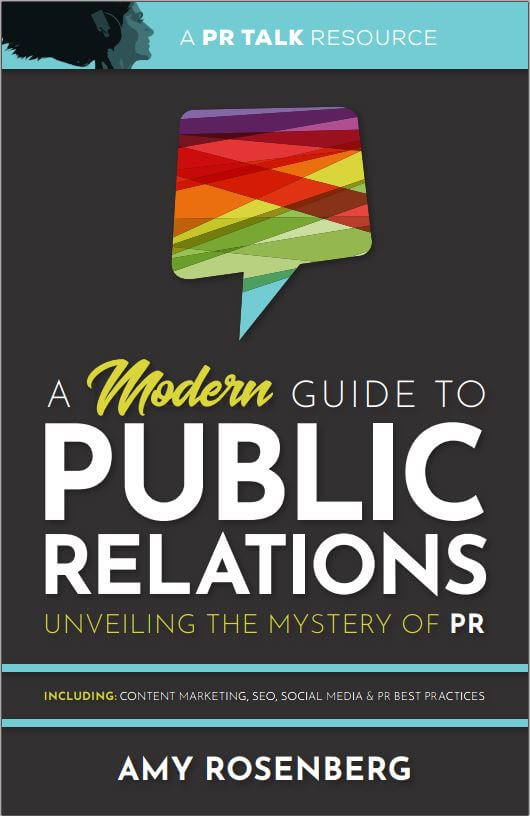As the owner of a public relations (PR) firm, I’ve been on hundreds of discovery calls with potential new clients. And in my experience, most of these calls go the same way. The potential client wants an initiative promoted and only asks if we have experience with that particular thing. From there, they don’t really know what other questions to ask, let alone how to judge if we’ll be a good match for their needs.
When you’re searching for a potential PR vendor, these discovery calls are an opportunity to determine how your future working relationship will unfold and set the stage for success or failure. While good vendors can help you do that work upfront, I’m outlining a framework to make these initial calls more effective and, hopefully, improve your final results.
Ideas to Consider in an Initial Call
You’ve likely started this process by developing a list of potential PR vendors from referrals or your own research. I suggest approaching the next step in phases and using an initial match call to determine which firms on your larger list fit your needs and working style. As you’re having these conversations, keep the following ideas in mind:
Explain Your Needs, Then Shut Up
Potential vendors need to know about you, so start these calls by explaining your problem, project or initiative. But be careful not to do all the talking. In many ways, the best PR pros are like counselors. They explore your pain points and needs and develop solutions to address them. During this initial call, allow vendors to engage with your needs by asking questions and providing ideas to meet them. If they don’t do a good job of this, they likely won’t provide the support you’ll need.
Find Out if They Can Do the Work
Many marketing firms offer PR services. However, that doesn’t mean they actually do PR. This work is about so much more than writing press releases. So as you’re conducting your initial match calls, find out if PR is one of their core services or just an ancillary offering. There’s a world of difference between the two approaches.
Be Wary of Yes People
A good PR or communications person will interject and ask questions during these calls because they’re information gatherers at heart. As a result, they might point you in a different direction than you intended or suggest other services they think would be a better fit. This push-back is part of the process and demonstrates the expertise you seek. By contrast, people who agree with everything you say or don’t contradict your approach may not have the experience or, frankly, the backbone to do the work the way it needs to be done to achieve great results.
You Can Talk About the Budget if You Want
Talking about budgets can be something of a sticky wicket for new clients. Many people are uncomfortable discussing budgets before they get a vendor’s quote because they’re concerned the vendor will use that information to max out their proposal. While this is a reasonable concern, it’s crucial to determine if you and the vendor are playing in the same ballpark during the match call.
You need a general sense of what the vendor charges and whether they operate on a project or retainer fee basis or if they enforce client minimums. Vendors also need a general understanding of your available budget to allocate their time effectively.
Questions to Ask During Subsequent Calls
Ideally, you’ve used match calls to cull a large list of PR firms into a smaller group that could meet your needs. Now it’s time to move on to the discovery phase, where you dig deeper into how these firms will do the work. Approach this phase of the process the same way you would a job interview and ask each potential vendor the same key questions.
1. Do They Have the Right Experience?
Lots of people make the mistake of asking potential PR or communications professionals if they have experience in their particular industry. This approach is a mistake because it’s more important that they have experience targeting your audience. Don’t get tricked by firms only working in a single industry. Instead, look for partners that can position you in front of your buying audience. That process will always return the best results.
2. What is Their Work Record?
One of the best ways to judge a potential PR firm’s future work is to examine its past results. Your contacts should be willing to provide references, and it’s wise to contact them if you feel comfortable doing so. If that feels weird, ask how long they’ve worked with their current clients, particularly those they discuss in meetings. Ideally, you want to create a long-term relationship that will deliver outstanding results for years to come. A firm’s client retention rate will tell you a lot about its ability to work effectively over the long term.
3. How Long Were They at Their Previous Job?
Sometimes a freelancer or solopreneur will be your best choice, rather than a firm. In those instances, you’ll want to assess this person’s abilities and capacity to do the necessary work. Delving into their professional history is a great place to start. After all, you don’t want to work with someone who’s using you as a stopgap between full-time jobs. Instead, you want a PR partner who will be as committed to your success as you are.
They should also have access to a media monitoring system that’s more sophisticated than Google Alerts. If you primarily need local PR, this might not be as important. However, a tracking system is critical for multilevel PR conducted in multiple markets. Also, be mindful of the way this person treats their business. If they take it seriously, like it’s a real business, rather than a side hustle they do for a little extra cash, they’ll be more likely to approach the work with the professionalism you’ll need.
4. How Will They Communicate?
Asking how your potential PR partner will communicate can give you some insight into what they’re like. However, it’s important to note that this question has no wrong answer. A vendor might have rigorous protocols for communicating with clients, or they could be very flexible or casual. What’s most important is that their method matches your needs. By establishing these processes up front, you’ll prevent problems later on by ensuring your communications expectations aren’t misaligned.
5. What Will They Do if Something’s Not Working?
This question lets you judge whether a potential PR vendor can think flexibly. Ideally, they’ll consider changing their services for you if the approach isn’t effective. By taking a more flexible approach, PR firms can keep clients longer by adjusting as the work ebbs and flows. This question may also be an opportunity for the vendor to talk about results and how they judge if an approach is working.
6. How Will They Show Results?
Discovery calls should be a time to ask vendors how they’ll report work and results, plus how they’ll judge which outcomes are effective. For example, they could be obtaining a lot of coverage for you, but if that coverage isn’t affecting bottom-line results like sales or hiring, they’re not doing much good. Reporting should happen on an agreed-up interval and format, ideally during regular update meetings where you both judge your strategy’s effectiveness.
7. How Will They Manage the Work?
If you’re interviewing a large firm as a potential partner, the person you speak with on the discovery calls likely won’t do the actual work. Instead, they will turn it over to junior-level team members. So if you’re considering using a big firm, ask to meet the person who will be your day-to-day contact and the person managing your account. You’ll want to make sure they can communicate with you and that you trust them to represent you publicly. As a result, it might be necessary to have three meetings: a match call, a discovery call and a call to meet your day-to-day contacts. If that’s a problem with the firm, then they may not be the right vendor for you.
It’s Not All About Ideas
Hopefully, this framework will help you get the most out of your match and discovery calls. But you should consider one more idea when talking with potential PR vendors: it’s not all about ideas.
You’ll find it’s common for people in these initial meetings to lead the conversation by painting flashy pictures about everything that’s possible when you start working together. But ideas can also be liabilities. After all, the hard work is pushing ideas through to reality. What matters most is how effectively they’ll execute your communications strategy.
So instead of using ideas as a selling point, pay more attention to your potential vendors’ general fit and vibe, along with client longevity and overall business practices. These will be the signs you can use to determine if you can create a genuine partnership with a potential vendor.
Find Your Equal Match
As a PR professional, I want potential clients to put me through the wringer during the vetting process. That way, I know they’ll be engaged with the process and invested in the final results. As you choose your next PR partner, don’t be afraid to ask tough questions or bring high expectations to the table. When a firm can meet you as an equal under those circumstances, you’ll have the recipe for creating success together for years to come.









